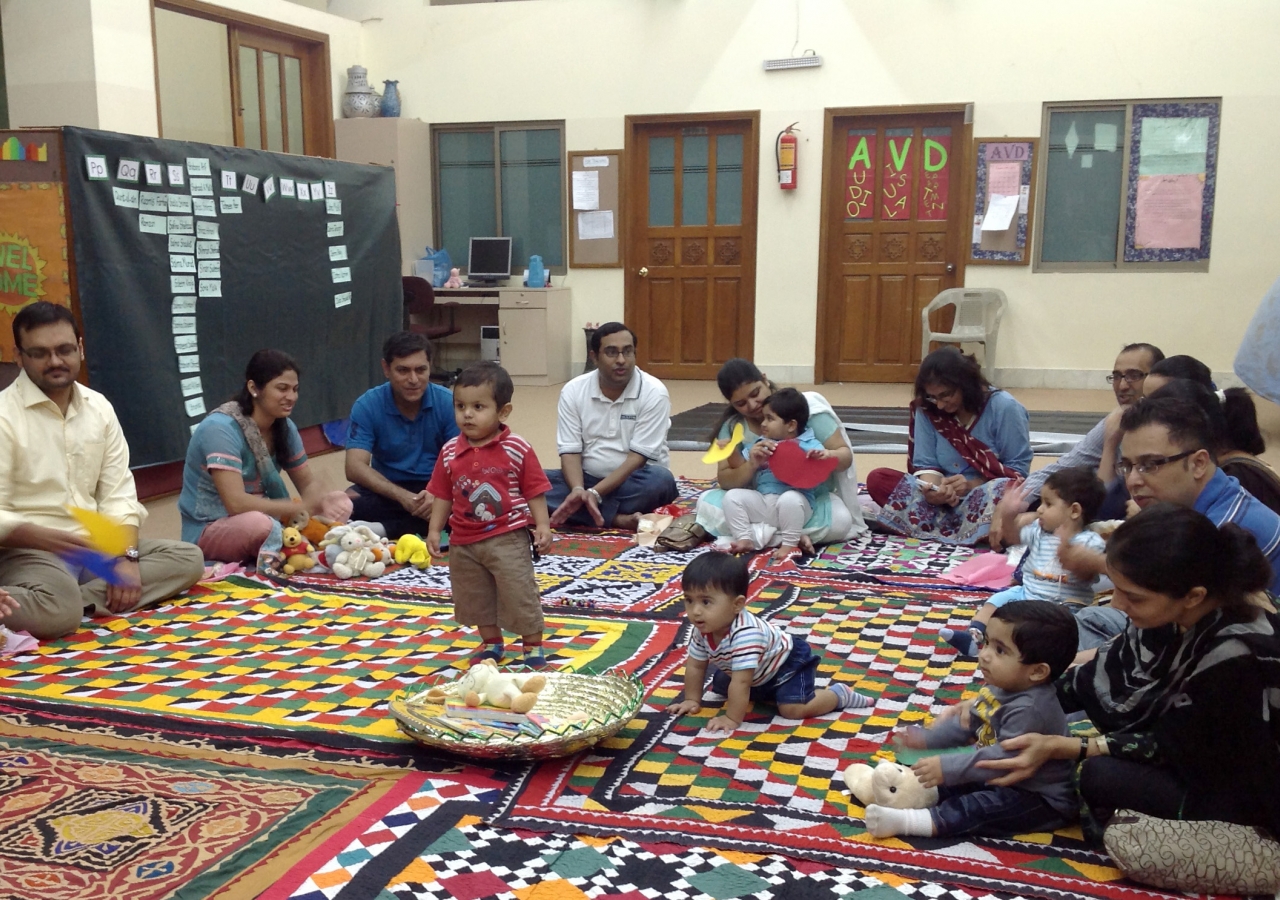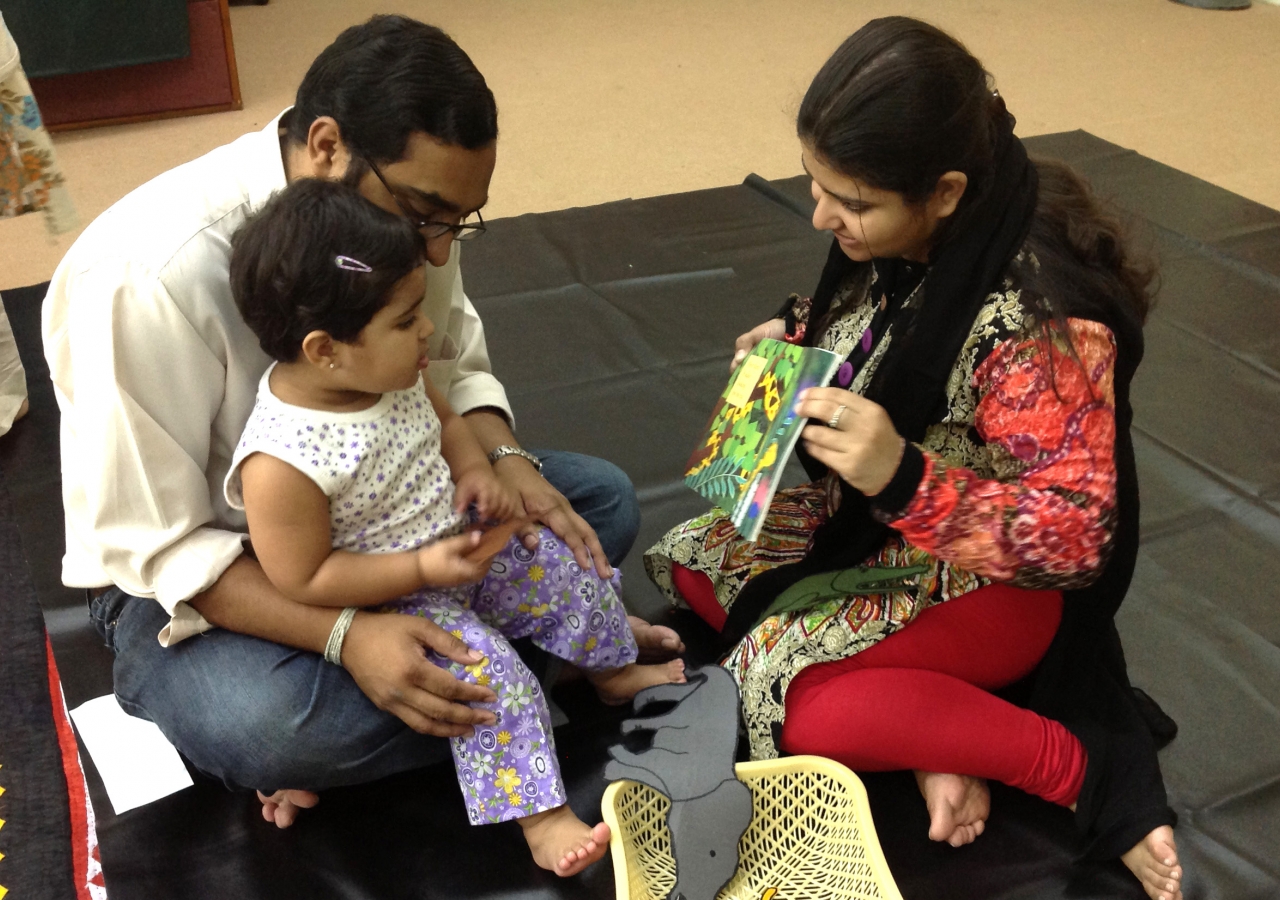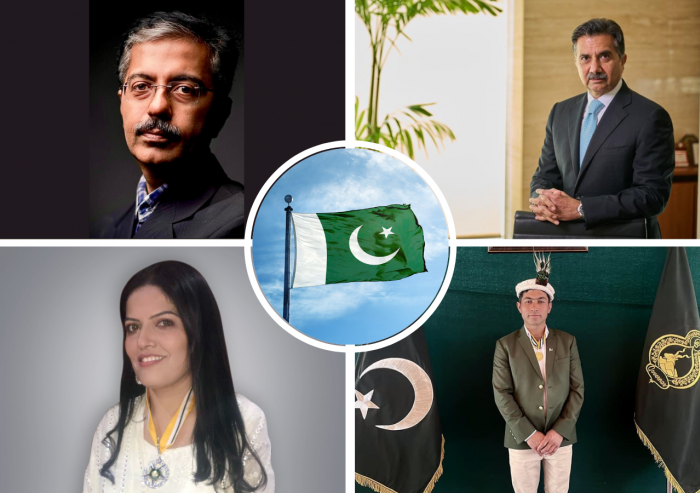Little Iqra is full of excitement. The 1½ year-old can’t wait to spend the morning playing, singing and enjoying with her mother, father and friends, as part of the Parwaaz Early Child Development Programme.
Just like always, the first thing Iqra does is to put the book and toy that she borrowed last week in a basket by the door. She sits on her mother’s lap in a circle with other young children and their parents. The session begins with recitations from the Holy Qur’an and other Ismaili Muslim devotional traditions, followed by the National Anthem.
Iqra bubbles with excitement when the facilitators sing her favorite song, Nana sah chooza. She bounces to the beat and tries to copy her parents hand actions. After a few more songs in different languages, Iqra eagerly listens to the story Brown Bear, Brown Bear, What do you see?
The facilitator narrates the story with expression and actions. Iqra, who is holding a prop of a red bird — one of the characters in the story — waits anxiously for the page with the red bird. Then it is time for all the children to engage in activities together with their parents.
Giving children the best start
Parwaaz is one of a growing number of early child development initiatives being introduced in Pakistan. Designed for children six months to three years old, it is the result of collaboration between the Ismaili Council for Pakistan, ITREB and select AKDN institutions, including the Aga Khan Education Service and the Aga Khan Health Service. It aspires towards 100 per cent of children in the Jamat having access to to early childhood programming.
New science about early human brain development shows that much of what parents and caregivers naturally do when they interact with babies is highly supportive of healthy brain development. In light of this evidence, Parwaaz supports parents in the Jamat to create the best start for their children by making the most of everyday learning opportunities — listening, talking, praying, playing, singing and sharing stories and books. Opportunities to spend time with parents and caregivers in these ways support children to become active learners and confident communicators.
In addition to engaging children and parents in activity, Parwaaz enhances parents’ understanding about why particular activities help children's later development. One of the key predictors of a child’s success when they enter school is the number of words they hear in their first two years of life. The more words and the richer the vocabulary, the greater a child’s vocabulary will be.
A richer vocabulary, in turn, provides a better foundation for literacy. As such, talking, sharing books, stories, songs, ginans and qasidas from birth helps children greatly. Play with blocks, sand and modelling clay is enjoyable, and also helps children develop finger control, which makes it easier to write with a pencil later on.
Parents who have taken part in Parwaaz appreciated the age appropriate songs, stories, activities and integration of faith-based content. Some also try the strategies and activities at home with their children, including using everyday household items, like plastic bowls and wooden spoons, to engage their children in stimulating activities.
“I learnt new strategies of storytelling and reading which will help in the language development of my child,” said one parent. Others commented on changes they have observed in their children’s behaviour. Some parents felt that their children have become more social now, include other family members in their play, and communicate with others more confidently.
Engaging parents and children together
Back in the classroom, song and story time is over. Iqra and her parents prepare to take part in an activity related to the session theme. Today’s theme is early science development, and the children and parents will be doing a water activity to explore the concept of sinking and floating.
Iqra puts different objects into the small bucket of water while her parents encourage her to guess whether they will float or sink. Facilitators provide the materials for this activity and guide parents in their interactions to support their children. Each family participates independently to encourage quality, focused time between parents and their children.
After 20-30 minutes of parent-child activity time, the children and parents tidy up and return to the circle for more songs and then prayers to end the session. The children then get a bit of free play time, while parents gather around the facilitators to review key messages from the session.
Iqra runs to the back of the room to play with the blocks for a little while. Then, after washing her hands she is served a delicious, nutritious snack. Before leaving, she borrows a new book, and wishes “Ya Ali Madad” to her friends and facilitators.
She’ll be sure to bring the book back next time for another fun morning with her parents and friends at Parwaaz.
Dr Almina Pardhan is the Member for ECD at the Ismaili Council for Pakistan, and Assistant Professor in Early Childhood Education and Development at the Aga Khan University Institute for Educational Development.
Shaheena Sulaiman Lalani is member of the Parwaaz ECD Programme Curriculum Team and a Research Officer at the Aga Khan University Institute for Educational Development.
This story was adapted from an article published in The Ismaili Pakistan magazine Issue 63.









